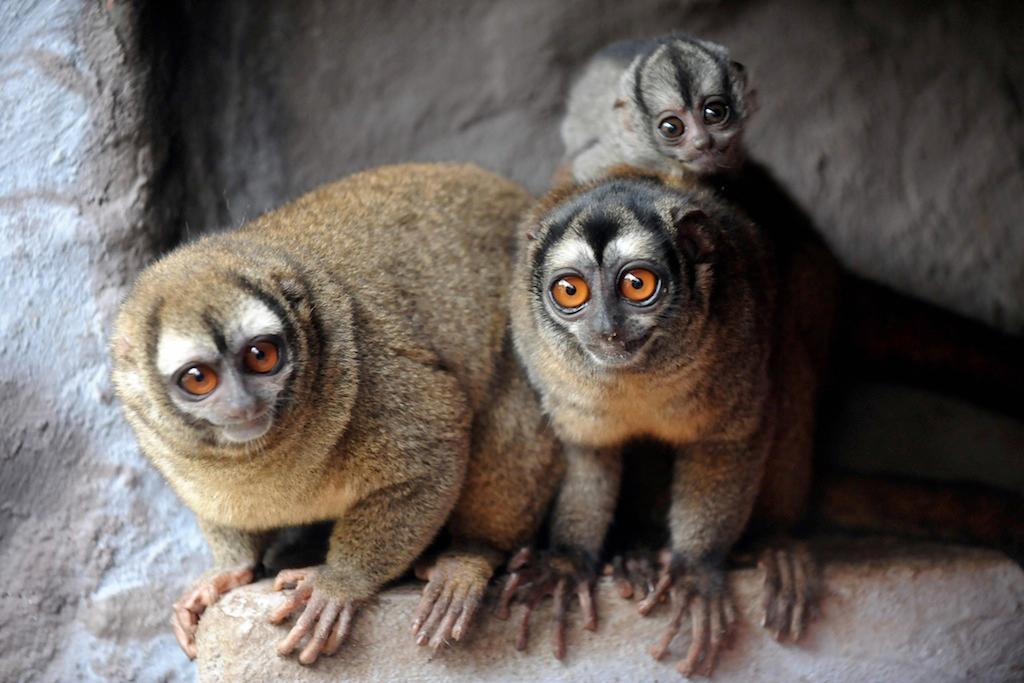Eight new mammals discovered in Peru’s rainforests
A Grey-bellied Night Monkey (Aotus Lemurinus) born in captivity one month ago, climbs onto his mother (R) on May 19, 2009 at the Santa Fe Zoo, in Medellin, Antioquia Department, Colombia. The Night Monkey is an endangered species and the discovery of a new species of night monkey in Peru is particularly notable.
Scientists exploring the Peruvian rainforest have discovered eight previously unknown mammals and three new amphibians
Explorers discovered the new fauna on a two-year expedition into the Tabaconas Namballe National Sanctuary, near the border with Ecuador, reports Fox News Latino.
The cloud forests of the Peruvian Amazon, which were dubbed a "new paradise of unknown biodiversity" are home to at least 85 kinds of mammals, 326 kinds of birds and 23 kinds of reptiles and amphibians.
Cool Earth reports that the "new" mammals include a night monkey, a porcupine, an olingo (a raccoon-like tree-dwelling animal), a marsupial, a shrew, four rodents and a possible new species of gray fox.
Locals also told the magazine that there is an unusual porcupine with orange-skin that can occasionally be seen in the forest.
Horacio Zeballos of Peru and Gerardo Ceballos of Mexico, lead scientists on the expedition, told Cool Earth they hope to return next month to do more research.
"If there are this many new large species, imagine what we might find from the insect world," said Ceballos.
The discovery of a new species of night monkey could be considered the most important because they're rarely seen and little studied.
Night monkeys are listed as "vulnerable" by the International Union for Conservation of Nature and endangered by the Peruvian government, reports National Geographic.
The new species was found close to the border of Ecuador, expedition co-leader Ceballos told National Geographic.
Ceballos said the new night monkey has not been named and features a more uniform color and smaller skull than other night monkeys in the area.
